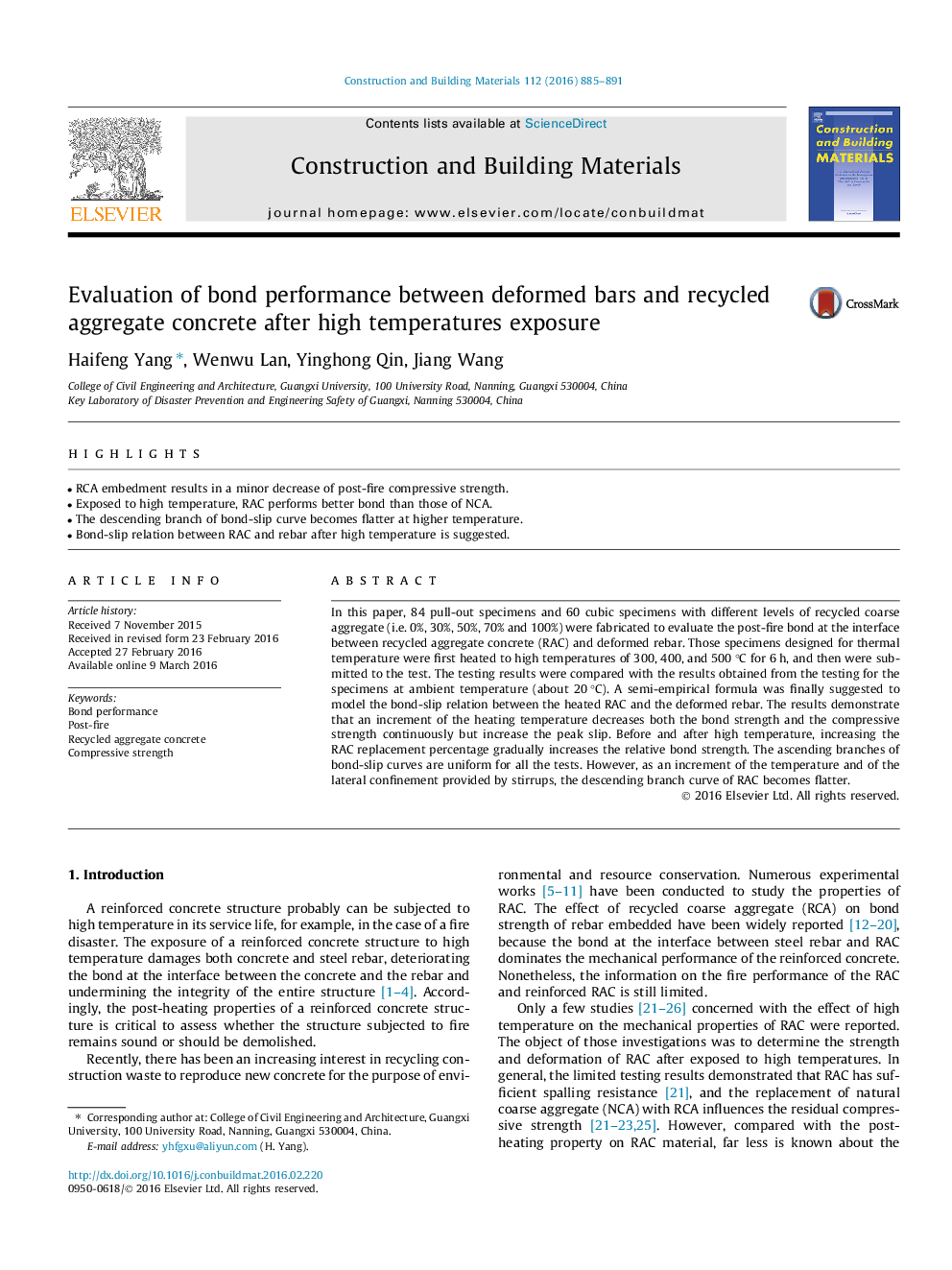| Article ID | Journal | Published Year | Pages | File Type |
|---|---|---|---|---|
| 6719449 | Construction and Building Materials | 2016 | 7 Pages |
Abstract
In this paper, 84 pull-out specimens and 60 cubic specimens with different levels of recycled coarse aggregate (i.e. 0%, 30%, 50%, 70% and 100%) were fabricated to evaluate the post-fire bond at the interface between recycled aggregate concrete (RAC) and deformed rebar. Those specimens designed for thermal temperature were first heated to high temperatures of 300, 400, and 500 °C for 6 h, and then were submitted to the test. The testing results were compared with the results obtained from the testing for the specimens at ambient temperature (about 20 °C). A semi-empirical formula was finally suggested to model the bond-slip relation between the heated RAC and the deformed rebar. The results demonstrate that an increment of the heating temperature decreases both the bond strength and the compressive strength continuously but increase the peak slip. Before and after high temperature, increasing the RAC replacement percentage gradually increases the relative bond strength. The ascending branches of bond-slip curves are uniform for all the tests. However, as an increment of the temperature and of the lateral confinement provided by stirrups, the descending branch curve of RAC becomes flatter.
Related Topics
Physical Sciences and Engineering
Engineering
Civil and Structural Engineering
Authors
Haifeng Yang, Wenwu Lan, Yinghong Qin, Jiang Wang,
